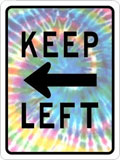 Hang on, kiddies. Here we go an yet another rambling, non-cohesive post that travels all over hill and dell and even has a little Octomom thrown in for good measure, if you read all the way to the end…
Hang on, kiddies. Here we go an yet another rambling, non-cohesive post that travels all over hill and dell and even has a little Octomom thrown in for good measure, if you read all the way to the end…
For three decades, the United States has seen the movement of wealth from the bottom to the top. Thus, this question has to be asked: Is this a good thing?
Not surprisingly, I’m sure most of the wealthy would answer, “Oh yeah. So good. Oh yeah, that’s it. Don’t stop. Uh huh, uh huh.”
That’s just ducky for them!
Those giving up the wealth, however, might not be that eager to agree.

On second thought, the needs of the many can bite me right now.
In my humble opinion, though, the question, “Is this a good thing?” needs to be couched in a broader context. To properly answer a question like that, I suggest that we must consider it on a societal level, not on a per individual basis.
What good is accomplished by shifting wealth from the many to the few? Does it make America stronger? Does it create more jobs? Does it reduce the crime rate? Does it lessen the amount of pain and suffering? Does it put more food in the bellies of undernourished children? Does it improve or hurt the standard of living for the most members of our society?
Wikipedia says an oligarchy is “a form of power structure in which power effectively rests with a small number of people. These people could be distinguished by royalty, wealth, family ties, corporate, or military control.” I suggest that the last three decades have decidedly moved us in that direction.
Even with the last three decades under our belt there is still much debate about the tax rates paid by the wealthy. Earlier today on CBS Sunday Morning I saw someone claiming that multimillionaires in the United States pay about 17% percent in taxes. Down near the bottom of the barrel, I make a few bucks an hour more than minimum wage and can barely afford a new pair of sneakers. Yet my tax rate is double than that. How can that be? How can my rate be double compared to people who own mansions, boats and multiple cars just for fun? That is fucked up.
How about we say, “Fuck higher tax rates for the wealthy? How about they simply pay that same rate as those who have much less wealth?”
So the debate rages on. Those on the right say we need to cut government spending (but hold steady or increase defense) while reducing taxes on the wealthiest among us as a way to reduce the deficit. Those on the left say than an increase in the tax rate on the wealthy is needed.
In the past the top marginal tax rate on the wealthy was high, at or above 90% in the 40’s, 50’s and 60’s. But it has declined ever since. By the time of Nixon it was down to 70%. Under Reagan it dropped to about 50%. The George W. Bush tax cuts kept it around 35%.
The results of the last 30 years are now known. The rich are richer and the poor are poorer. Is this a good thing? I think the results speak for themselves. The U.S. unemployment rate is too damn high. Too many American jobs have been outsourced. We’ve had the recession, the mortgage crisis, and the bailouts. And the debt is out of control. Things are clearly not working as they should.
I don’t know a lot about money. I find economics too abstract and confusing beyond a very simple level. When I was in the first or second grade, I remember wanting a book called “Money.” My teacher told me if I read enough books I’d earn the book I wanted. I read those books, and I remember winning my prize. Unfortunately, I no longer remember what was in it.
What I know about money is that it is paper. Beyond our belief that it has value, money is basically meaningless. I’m reasonably certain, however, if you give me $4 U.S. dollars, there is a very high probability I can take those four pieces of paper to my nearby Carl’s Jr. and trade them for a delicious turkey hamburger. That is, if they are dumb enough, like me, to believe those pieces of paper have actual value. They will agree to that trade, and give me the hamburger, if they expect to trade the pieces of paper for something they want, and so on and so forth.
I’ve heard that money used to be backed by gold, something known as the gold standard. But I’ve heard that money is no longer backed by gold. I know that a dollar bill used to say “United States Note” but now it says “Federal Reserve Notes” but I’m too fucking stupid to know what that really means. I’ve been told that means each dollar bill I receive is actually a debt (or liability) that I now owe to the Federal Reserve. I think. But I don’t even really know what that means. One of my favorite movies is Zeitgeist and a portion of the film is dedicated to this sort of thing. They sure make it sound ominous as shit, and I feel bad I don’t really know what it all means.
It’s a lot like The Debt. I know, as a country, that we have debt. And I know it is large. I’m not economist, but I know what happens when people have too much debt. They declare bankruptcy and the creditors generally take it on the chin. I can’t help but wonder: What will happen if our country does that, too? It seems to me that if you have a system that is unsustainable, eventually it will fail.
Will we all have to speak a foreign language? Will we be herded into camps? Will there be war on United States soil? Perhaps Americans will be the latest people to work for a few dollars a day while people in other countries specialize in drinking Starbucks and buying expensive toys? Maybe the United States will someday become the trendy country to outsource jobs? At this point, there is probably literally nothing that would surprise me. Let’s just say that these are confusing times and I, for one, am glad to be on the backside of 30. I’m not so sure I want to hear how the story ends.
I do know this: I’ve worked all of my life since the day I was 16. During that time, I have been forced, by the terrible power of government, to pay, against my will, into a program known as Social Security. My understanding of this program is that I pay in to help other people retire, and on the day I retire, the program will automatically end and I’ll get absolutely nothing back. When that happens, I will feel … irritated. To say the least. My situation will no doubt be bone-chilling compared to someone like Ida May Fuller, the first ever recipient of a Social Security check back on January 31, 1940. She shrewdly paid $24.75 into the system but took back out $22,888.92 in monthly benefits. Now that is one whopper of an investment!
In other news, for all you sadistic get-to-the-bottom readers out there…
Octomom. Gone but not forgotten. At least by me, and certainly not on the day of the “O” post. What’s she been up to?
By the way, did you know she had six children before giving birth to octuplets? Words fail me. That’s a lot of poop!
Anywho, I hear that Octmom is facing the possibility of being evicted from her $585,000 California home. Apparently she needs money. A couple of web sites have reported that she’s considering using a dating service that will pay her $5,000 t0 $10,000 for each “first date” that she goes on.
So listen up, people! If you’ve been saving up your money for a rainy day, this could be it. Blow it all on a first date with a woman who has 14 children.
I can see the personal ad now. “Must love octoforms.”
This is my “O” post for the April 2011 “A to Z Blogging Challenge.”






















http://madtante.wordpress.com/ was right. You do talk about poop…a lot. Have you spoken with a therapist about what was obviously a harrowing bowel movement experience?
LikeLike
It’s all part of the circle of life, Simba.
When this blog was born, poop wasn’t even on the radar. But my fourth post of all-time, Gold nugget economics. I’m gold, you’re poop, somehow started some kind of trend. Before I knew it, all of the sudden, poop was my #1 tag. Right then and there I made it my solemn promise that poop would always be #1, no matter what. It is my commitment to you, my loyal reader.
Poop is just another magical part of the mystery of life. And this blog has reported on many poop discoveries along that way. I urge you to explore that tag!
LikeLike
Ooo! Thanks for the shout-out. I’m right about 50% of the time…or is that I reckon I have a 50% chance of being right 100% of the time? I can’t do numbers, so thanks for noting my rightnessitude.
LikeLike
That’s the thing about economics. The numbers start to fly, each sides use different ones, and those of us who are NOT behind the curtain are left wondering, “What is real?”
That must be where real numbers come from. Too bad all we ever see is the imaginary ones.
LikeLike
This constant cut spending, cut taxes thing is killing us. In my county we are firing teachers and closing schools. This will no doubt add to our crime rate. The difference in taxes on a $500k house that would keep the schools open? $100 a year.
And dont even get me started on the overpaid public employee thing they’re selling people now.
LikeLike
I hear that we spend more per student on education that other countries. I’m not sure about that. I haven’t found a good source yet to explore that sort of thing.
As an honorary Junior Member of the TEA Party (self-described) I do feel that government is too big, out of control, and doing things beyond its mandate. I’m just not too sure on the specifics yet.
LikeLike
I used to think the flat tax was AWESOME but my homie John wrote a fabu article on that, too. When it comes down to it, I shouldn’t try to figure numbers at all, should I?
LikeLike
One benefit of a flat tax is that you could do away with 99% of the IRS and it’s employees. Having a complicated tax code, deadlines and forms requires a lot of bureaucracy.
I look forward to reading John’s article.
LikeLike